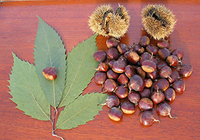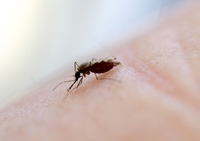Forcing Evolution on the Great Salt Lake Ecosystem

New research completed at the University of Notre Dame’s Environmental Research Center (UNDERC) – West indicates that as sinking brine shrimp cysts remain while many floating cysts are removed, the brine shrimp population is shifting to contain more sinking cysts.
Notre Dame Research to showcase Commercialization Opportunities at BIO 2016

The University of Notre Dame will attend the 2016 BIO International Convention, which is hosted by the Biotechnology Innovation Organization (BIO) from June 6 - 9, 2016 in San Francisco. Represented Notre Dame Research groups at the event include the Harper Cancer Research Institute (HCRI), the Center for Nano Science and Technology (NDnano), as well as Technology Transfer.
Understanding Behavior Key to Combating Malaria

Today, April 25, is the annual World Malaria Day. This year’s theme – End Malaria for Good – seeks to build upon past successes in combatting this deadly disease, which killed over 435,000 people in 2015, and sustain this progress in order to truly “end malaria for good.” At the University of Notre Dame, Neil Lobo, a research associate professor of biological sciences and an Eck Institute for Global Health faculty member, is working to end malaria for good by focusing on the vectors that transmit the disease and how certain methods or interventions reduce malaria transmission.
Using DNA 'fingerprinting' to understand ancestry and immunity of trees

When Europeans came to the New World in the 16th century, they brought measles and smallpox with them. Without the immunity Europeans had cultivated over the years, the native people in America quickly fell ill. Millions died as a result. Today, trees in the New World are also dying from diseases that were introduced through global trade started by the Europeans. However, trees are much more vulnerable than humans.
Using mathematical models to fight the Zika virus

New research from the University of Notre Dame will be used to generate maps that provide time-sensitive, mosquito-to-human ratios that determine patterns of mosquito population dynamics for the Zika virus. The model outputs will be available online to provide users with the ability to find reported cases and estimated incidences by location of the virus to improve disease transmission and prevalence forecasts, which is critical to making accurate predictions and translating results into effective public health strategies.